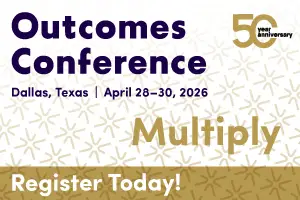

Eternity – A Sacred Trust in a Temporary World
Living as stewards of eternity means living with a mindset transcending the present. We must allow our lives to be shaped not by worldly success or failure metrics but by kingdom values—truth, love, and righteousness. The call to steward eternity means that our actions, decisions, and priorities must be reflected personally, as leaders, and within our organizations.
Stewarding Eternity Personally
Stewarding eternity personally begins with the internal work of allowing God to transform us. In John 17:14-16, Jesus prayed for His disciples, acknowledging that they are in the world but not of it. He does not ask for them to be removed from the world but for their protection from the evil within it. This prayer underscores a central truth for believers: we are called to engage with the world without being conformed to it. The world is temporary, yet we are responsible for stewarding something eternal: the message of Christ’s redemptive work and hope.
The gospel isn’t just a message we share; it is a truth that shapes who we are. How we speak, treat others, and handle conflict is an opportunity to reflect the gospel. In our relationships, work, and all we do, we are stewards of something eternal. Practical steps to stewarding the gospel might include cultivating a disciplined prayer life, immersing ourselves in Scripture, and intentionally aligning our worldview with the teachings of Christ. It also means being mindful of how we represent the gospel to others—whether through acts of kindness, offering forgiveness, or standing up for truth and righteousness. Each of these actions points to a higher reality: that we are living for something that lasts forever.
Stewarding as Leaders
When in a leadership position, the responsibility to steward eternity extends beyond personal conduct to how we influence others. Christian leadership is distinct because it is rooted in servanthood, not dominance. As leaders, whether in our homes, churches, or workplaces, we are called to reflect the character of Christ in how we lead.
In 1 Peter 5:2-3, Peter urges leaders to shepherd God’s flock not out of obligation but willingly and eagerly, not for personal gain, but with humility. Stewardship in leadership means guiding others toward immediate goals and eternal significance. We must ask ourselves: Am I leading in a way that points others to Christ? Do I encourage others to live with eternity in mind?
Stewarding Eternity within Organizations
Christian stewardship doesn’t stop at the personal or leadership level; it extends to how we operate within organizations. The way we steward our organizations reflects our understanding of eternity. We are not merely building temporary institutions but investing in something far more lasting. Christian organizations should be places where people experience Christ’s love and truth in word and action.
Whether we are leading a church, a business, or a non-profit, the values we uphold and the culture we cultivate should reflect the eternal mission of the gospel. While the methods we use may change and adapt to the needs of the time, the mission remains the same. Am I fostering an environment where God’s kingdom’s purposes are central and eternal values thrive?
For example, in a business setting, stewardship might involve creating a culture of ethical responsibility, where decisions are made not just for short-term gains but with long-term purposes in mind. For church leaders, it might involve ensuring that their activities and priorities are centered on the gospel, not just programs or popularity. Non-profit work might include advocating for compassion in ways that align with God’s heart for others. Christian leaders can profoundly shape the organizational culture by reflecting Christ’s servant-hearted leadership.
Conclusion: A Call to Steward Faithfully
Ultimately, the call to steward eternity is a call to faithfulness. Paul’s words in 1 Corinthians 4:2 resonate: “Moreover, it is required of stewards that they be found faithful.” Our time in this world is limited, but our impact through faithful stewardship begins now and echoes into eternity. We are called to live as those who understand that our gospel is everlasting while the world passes. At the heart of this calling is the personal responsibility each believer carries. This is an active role—a sacred trust to steward the gospel in every aspect of our lives.
As we reflect on our personal lives, leadership, and organizations, let us ask ourselves: Are we stewarding the gospel faithfully? Are we living with eternity in mind, allowing it to shape how we interact with others? Do our organizations reflect His eternal purposes?
Let us steward eternity well for the glory of God.
####
Dr. Mary Leavell is a Columbia International University adjunct faculty member/methodologist. She is an experienced educational consultant with a demonstrated history of working in the education management industry.
Only one more day left to take advantage of extraordinary savings!
Registration rates go up on November 1, 2024


Featured Articles
CLA Membership
Join Christian
Leadership Alliance
A commitment to membership unlocks a more comprehensive access to content, community, and experiential learning. Here are the three membership exclusives that exist to significantly accelerate your professional growth and personal development.








